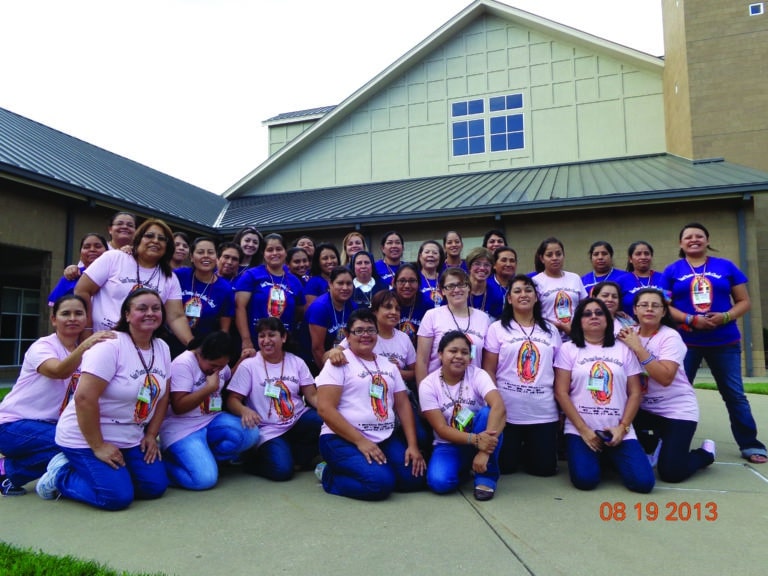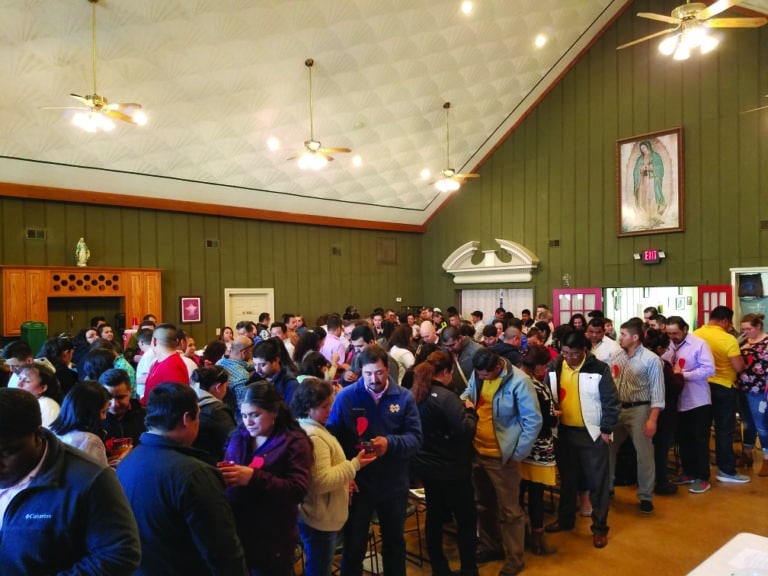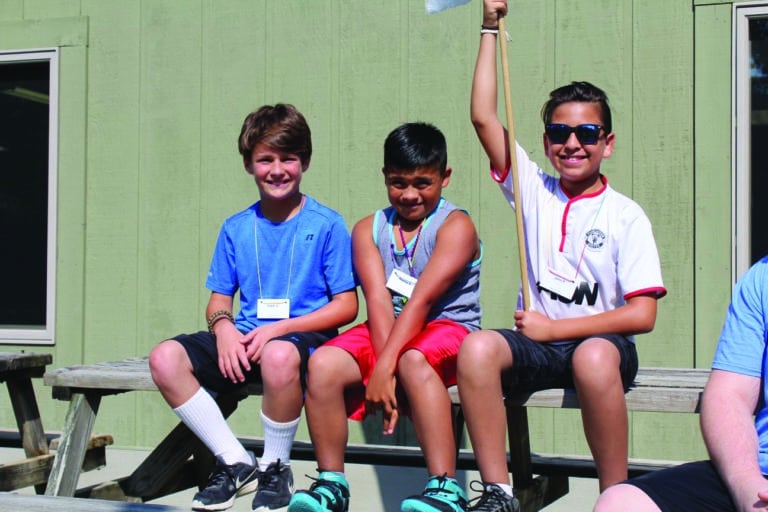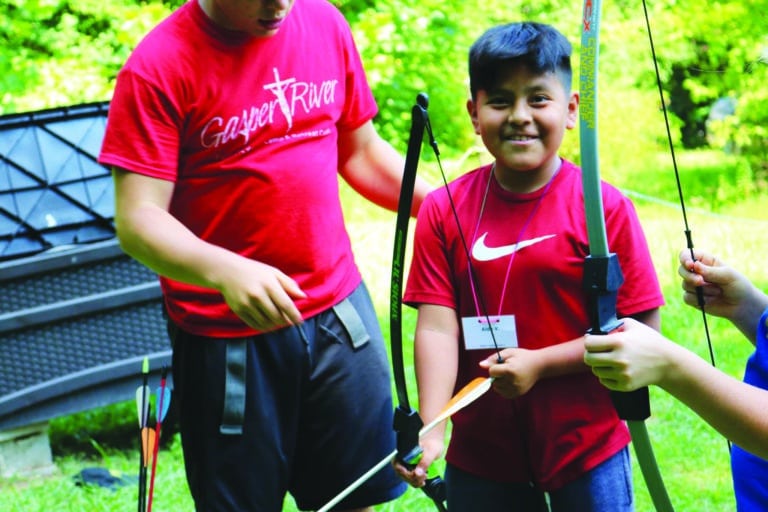SEE
There has been an increase in sacramental marriages in the Hispanic/Latino community in recent years. Many couples have decided to take this important step after being involved in their parishes and ecclesial movements. They have liked the preparation they receive at the Pre-Cana retreats and some couples have started using Natural Family Planning (NFP). Several couples have asked for more access to Spanish-speaking NFP instructors. Several couples have had good experiences with the Banquete de Bodas movement, but local accompaniment has been lacking after the retreats. There are still many Hispanic/Latino couples who are cohabitating or have only married civilly. Oftentimes young people skip over the dating and courtship stages and quickly start cohabitating and having children.
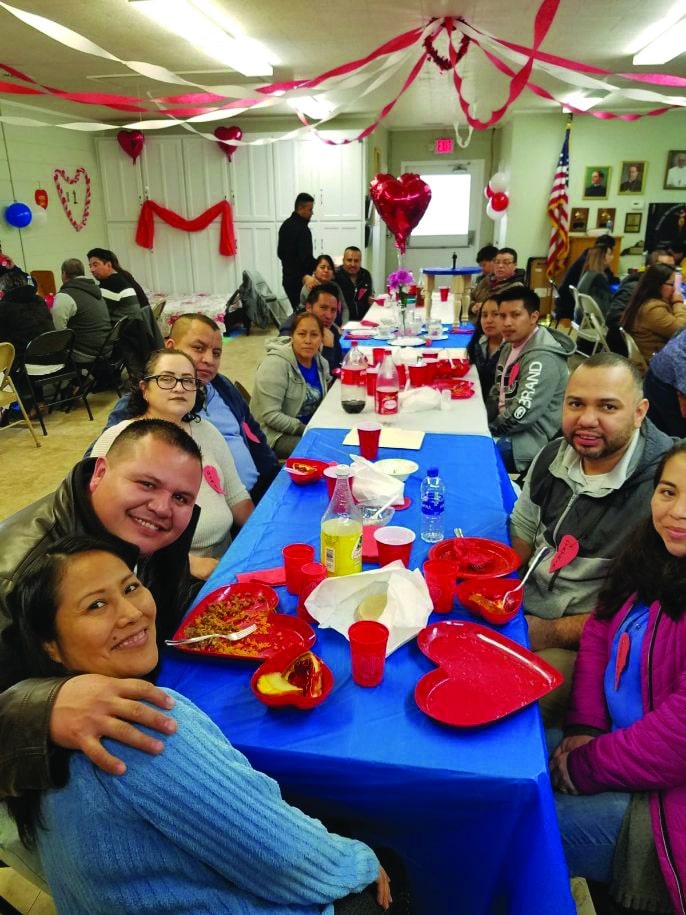
Photograph taken at the Hispanic/Latino Marriage Retreat at St. Michael in Sebree on Feb. 8, 2020.
For the Hispanic/Latino community, family is a very important value. In some parishes a sense of community and support among families has grown. Pastoral accompaniment has helped through retreats, ecclesial movements, small groups, novenas, posadas and other devotions in people’s homes. At the same time, there are many Hispanic/Latino families that are disconnected from the parish who only come for special events or
when seeking a sacrament. Many of them no longer return after the sacrament. There is a need for a family ministry with accompaniment of distant families.
Passing on the faith to the next generation is also a big challenge. Many parents lack faith formation, making it difficult for them to instruct their children or they simply do not make it important. Many youth and young adults reject the culture and faith of their parents and drift away from the Church over time. This lack of connection with faith and with the Church also makes it difficult for young people to discern their vocation in life. Some young people feel that they do not belong to either their parents’ culture nor to the prevailing culture. These young people need more support in their families and from people trained to work with young people. Several young people have had very good experiences in diocesan retreats and youth camps, but many families are unaware of these opportunities or need financial support and transportation to participate.
JUDGE
“The Church would do well to recognize that families are called to be the primary agents, and the home the primary place, for evangelization and the transmission of the faith from one generation to the next.” (P&C, p. 62) In current practice the parish has taken the leading role and the families a lesser role.
“It will take a radical re-engineering of our faith formation and family ministries to set these relationships on their proper foundations.” (P&C, p. 62)
“The next most common recommendation was to develop family ministries in parishes to focus on their pastoral care and accompaniment. This might entail providing formation to pastoral leaders so that they can respond or make referrals for families in crisis situations… There should also be an intentional effort to make every parish event or gathering family-friendly by involving parents, children and older generations in a process together, or by ensuring the availability of care and activities for the little ones when it would not be feasible to involve them in a session or activity with the adults.” (P&C, p. 76)
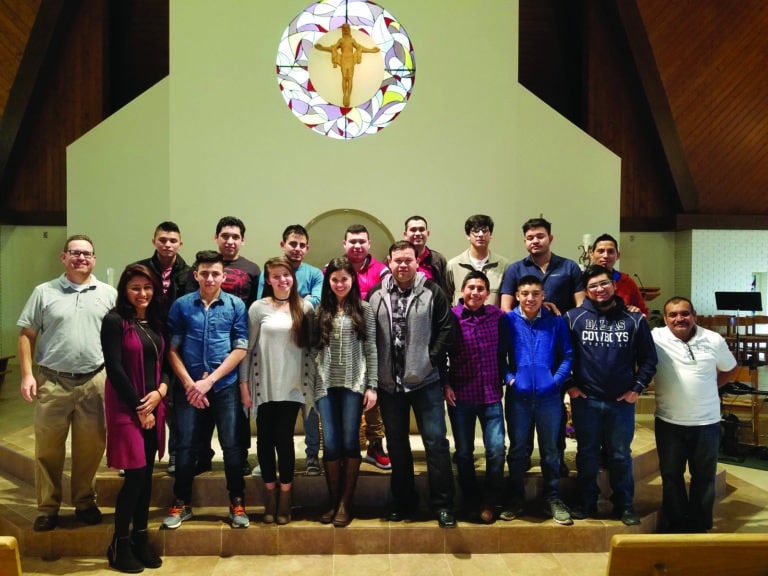
Hispanic/Latino young adult retreat on Thanksgiving Day 2018 at Christ the King Parish in Madisonville, KY.
“[Delegates] called for a renewal of marriage preparation to respond in constructive ways to the contemporary social and cultural challenges facing marriage, As well as for the beautiful Catholic vision for marriage and family life to be incorporated in ageappropriate ways into catechesis at all levels…Ongoing support for couples should also be provided to strengthen communication, eliminate violence or coercive control in the relationship, and to help them work through difficulties they may encounter…strengthen family unity and communication by supporting the retention of cultural practices, identity, and the language.” (P&C, p. 76-77)
“The promotion of ecclesial vocations must begin in families, and parents require bilingual tools and support from the parish to help them discuss, pray for, and encourage vocational discernment among their children…Vocational materials should address all vocations, including lay ecclesial ministry, marriage and family, and the committed single life.” (P&C, p. 82)
“It has become essential to provide multiple opportunities and a broad range of programs and activities to engage the adolescent members of the parish in a setting that is welcoming and addresses their holistic needs and personal interests.” (P&C, p. 77)
“Delegates also recommended that dioceses should budget to hire a diocesan coordinator of pastoral juvenil hispana. This person should work in a pastoral de conjunto with the offices of faith formation/catechesis, youth ministry, young adult ministry, and Hispanic/Latino or multicultural ministries to ensure that youth ministry and young adult leaders are equipped with the vision, principles, strategies and models for an effective outreach and accompaniment of the Latino young people they are called to serve. This would entail establishing and promoting formation programs to constantly equip new and emerging young leaders for these ministries…and form young leaders with passion, perseverance, joy and commitment to be evangelizers of their peers.” (P&C, p. 77-78)
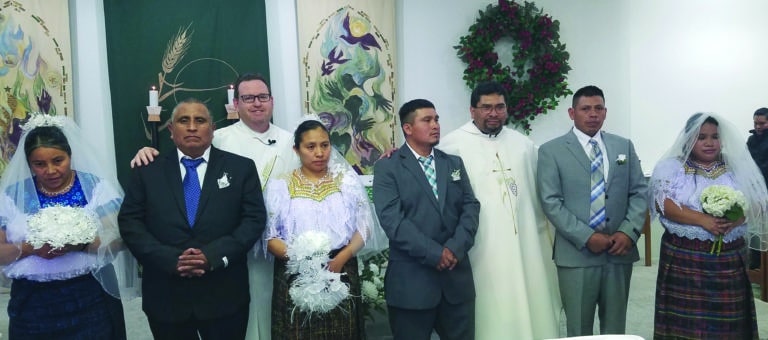
Newly married couples in Nov. 2017 together with Dcn. Chris Gutiérrez and Fr. Carmelo
Jiménez Salinas (from left to right): Lorenza and Miguel, Rosenda and Domingo, Permina
and Alonzo.
ACT
Since the parish is the principal place of accompaniment of families in all their stages, the parish leadership is encouraged to evaluate their current accompaniment and discern local actions to improve it. See Appendix C for references from the documents to study the topic further and questions for local discernment.
Diocesan-level projects:
Continue forming Spanish-speaking couples for sacramental marriage. Provide more marriage enrichment opportunities, now in each region. (Collaboration between the Offices of Hispanic/Latino Ministry and Marriage & Family Life)
- Pre-Cana retreats will continue to be offered twice a year (Ongoing)
- Mentor couples will be identified who can be trained to accompany couples in their communities, both to prepare for marriage and for ongoing support throughout their marriage and difficulties faced by couples and families. (2021-22)
- Banquete de Bodas will continue to be offered, but with an emphasis on one region each year and strengthening the stage of local accompaniment of these couples between the large events. (Ongoing)
- Continue expanding Natural Family Planning (NFP) services in Spanish. Support current instructors and find ways to train more. (2021-22)
Offer more opportunities for Hispanic/Latino youth and young adults in the different stages of the Missionary Disciples’ Journey. (Collaboration between the offices of Hispanic/Latino Ministry, Youth & Young Adult Ministry and the Gasper River Catholic Youth Camp & Retreat Center)
- Modify current diocesan camps, programs and events to attract more Hispanic/Latino youth & young adults. (Ongoing)
- Train more Hispanic/Latino adults in Safe Environment so they can be involved in events for children and youth. (Ongoing)
- Offer the Lazarus Retreat in Spanish. (2021-22)
- Hire a diocesan director for Hispanic/Latino Youth & Young Adult Ministry (pastoral juvenil hispana). (2021-22)
- Support and form more current Hispanic/Latino Youth & Young Adult Ministry leaders. (Ongoing)
(Left) COURTESY OF MISSY ECKENBERG Hispanic/Latino women at St. Thomas More Parish hosted a Christ Renews His Parish Retreat in Oct. 2013. (Right) COURTESY OF DCN. CHRIS GUTIÉRREZ Banquete de Bodas Retreat in Spanish for couples at Gasper River, led by Fr. Lustein Blanco Grajales in 2019.
Create a diocesan vocations team that can help foster a focus on all Christian vocations in Hispanic/Latino families and parishes with a Hispanic/Latino style and bilingually. (Collaboration between the Offices of Hispanic/Latino Ministry, Vocations, Marriage & Family Life, Young & Young Adult Ministry and Communications)
- Identify and invite team members. (2021-22)
- Find, create and distribute materials in Spanish to families about all the vocations.
- Offer family events in the regions where vocations are presented with panelists from each vocation.
- Include the topic of vocations in all programs for children, youth and young adults.
- Organize retreats and visits for children, youth and young adults to the seminaries and houses of religious life.
- Offer retreats and formation opportunities for quinceañeras (young ladies celebrating their 15th birthday), dating couples and young people in general that highlights the importance of the dating and courtship stages of relationships and the blessing of the sacrament of marriage.
- Provide parishes with resources for Holy Hours for Vocations and other materials to promote vocations. (2021-22)
COURTESY OF GASPER RIVER CATHOLIC YOUTH CAMP & RETREAT CENTER
Youth enjoy their time during summer camp at Gasper River.



